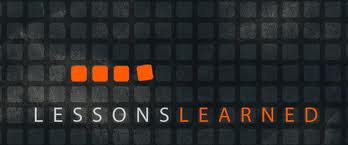
The Real Estate Game and Lessons Learned
A person that carries a cat by the tail learns something he can learn in no other way. Today, we intend to share valuable experiences we have learned while grasping that cat by the tail.
Our goal is to allow those persons who have not developed a “seasoned gut” learn from our trials and tribulations so that they may, hopefully, enjoy a smoother road to their own success.
1. Do Not Make Enemies
In real estate, there are multiple potential adversaries. A builder, for example, may be faced with a litigious Owners Corporation, a landlord may have an unscrupulous tenant, a lead syndicate investor may have a partner who is not satisfied with the progress of the real estate venture. A potential adversary may be created from any particular arrangement, partnership or negotiation.
Enemies are a threat to any business because they make you emotional, they consume your energy, your thoughts and distract you from focusing on good business judgment and decision-making. More importantly, enemies communicate and gossip negatively about your business and this naturally damages your reputation.
In many circumstances, you will not be able to control a situation that creates an enemy. In these instances, control your reaction. Try to resolve the dispute. Spend your time working to create a solution and, if necessary, subordinate your goals to those of your investors. Spend your energy moving your company forward and upholding the company’s reputation and leave the negativity behind.
2. Network, Network, Network
Real Estate is about relationships and reputation. To succeed, you must be able to know, trust and manage relationships with lawyers, architects, agents, planners, surveyors and contractors.
To build a network, be prepared to meet with as many people as you can. Kindly request for agents to set up meetings with local investors, become a member of the relevant property institutes and attend seminars and events, use social media, such as LinkedIn, to identify relevant contacts and arrange to meet up for a coffee or lunch. After networking meetings, add contacts to your relationship management program with a few notes and a reminder to follow-up in a month or two. Continue to always build trust and nurture relationships.
3. Never Mix Business With Family
I was warned against it. I have repeatedly read about it. It is common sense.
Notwithstanding, I still did it! When you begin a service orientated relationship with a family member, you expect treatment that goes above and beyond. You also expect a family discount. This is a double whammy as not only will you expect exceptional quality service, but also for a price less than what would be charged to a non-family member. Furthermore, awkward moments arise whenever payment is requested.
In short, it is best to avoid doing business with family members. If you have no other choice, it is wise not to charge for your services. Granting a favour will mean that there can be no complaints and the relationship will not be strained.
4. Work With The Familiar
As a rule of thumb, only get involved in a market where you have strong local knowledge and connections. For example, Trident Real Estate Capital only concentrates on real estate in South Sydney and primarily in suburbs such as Rosebery, Alexandria and Beaconsfield. We have established networks with agents and are familiar with recent market activity and sales comparables. Similarly, we only like to work with people that we know and trust.
5. Debt is Not King
Debt can increase your purchasing power, however, it does not necessarily increase your return on equity. For example, imagine a situation where you purchase a property. The return on property cash flows is 3% and the interest paid on debt is 6%. Such a situation would mean it is very difficult to make a return on the investment until the property cash flows grow significantly. This is not an ideal situation.
Debt is thus like a double edged sword. It has the ability to magnify your purchasing power and increase your returns, on the other hand, you may find yourself in a situation where all your hard work is simply amounting to paying off the bank.
Your Input
Now that we have shed light on our experiences, what are some lessons you can share from your journey?